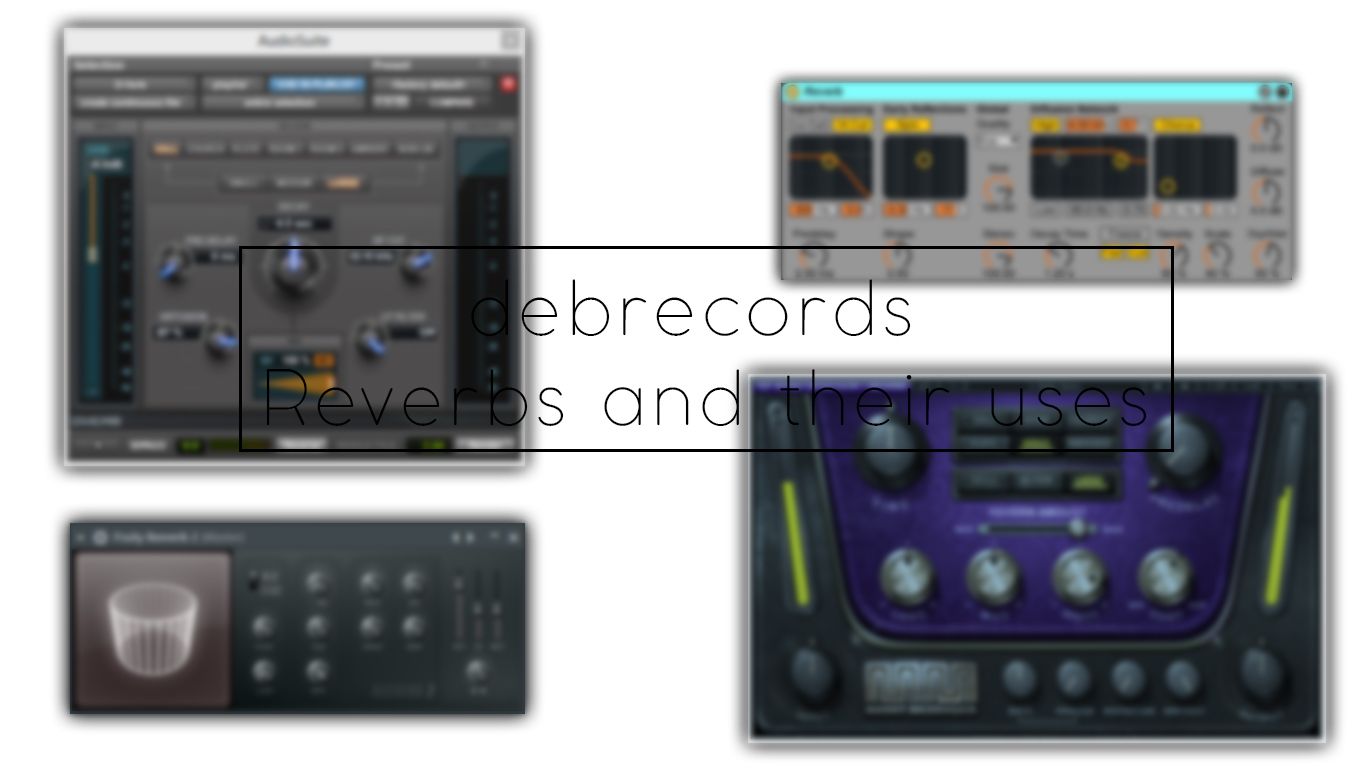Reverb theory of time and space!

A sailor walks into a medium sized bar, goes for a drink and talks in general with a group of people, he then walks down the road and enters a fairly large ball room, scopes some ladies and gives a singing number for good measure. Feeling guilty of his actions, he heads towards a huge cathedral and the priest calls forth for him, the priest sounding like he beckons a dead back to life.
What do these three places have that gives them a distinct character?
Different reverb time and space.
monitor on
Welcome one, welcome all, today, well be taking y'all on another tutorial session. This time on the principles of reverb.
what is reverb?
Reverbs are reflections. More specifically, they are boundary reflections, i.e sound bounced off of a wall, glass or anything that constitutes a boundary.
To understand this, some imagination is required. So fire up your 12 year old brain again!
Imagine, a dog standing in the middle of a room closed on all four sides. The dog then barks. The bark is essentially sound and the sound waves project outward on all directions until the they strike all boundaries within the room.
Some of the energy is absorbed by the material used to create the room, some passes through the boundary and the rest is reflected.
We let the dog continue to bark, and soon enough, the whole room is filled with a random field of the sound of the dog bark.
The dog then stops barking at one point. While the dog has stopped barking, the sound energy of the bark is still available in the room, and the waves continue to bounce round the room.
The sound slowly decays and soon all the sound energy has either been absorbed or passed through, and total silence falls. The decaying of the sound is what is called reverbation.
Reverbs are the reflections of multiple random reflections from a sound, blending together to create a sort of whoosh, or tail, that gives sound their distinct feeling and vibe.
Reverbs on a computer
Now many sure are wondering , if reverbs are a natural phenomenom, then how can it be traslated to the digital world.
Well there are several ways, for example, the use of what is known as impulses, a special recording of the ambiance or how a room sounds when an item is hit.
These reverbs often are big and expensive,because recording the ambient of a room requires special equipments.
Another alternative for the not-so-beefy-computer is to use a lightweight reverb which creates so many random reflections of a sound based on algorithms and calculations.
The reverbation
When in a room, the amount of reverbation depends on many things, it depends on the room size and the number of boundaries that in the said room,we could be having
.png)
The above reverb plugin is that of MM aka Manny Marroquin, and ill be using it to explain some details.
A reverb has two main button or knobs, followed by a room size parameter
##Time
The function for time is simply to set how long or short the reverb signal is to play from full strength to decaying to nothing.
Predelay
You know how an echo works right? say something, wait a while, then it bounces back
This knob sets the amount of wait that occurs when a signal is given.
Others
the room selector gives the type of room that the reverb emulates; The filters are used to shape the darkeness, or the general mood of a sound.
The difference between the three scenarios is the space on which the three planes reside.
The cathedral has a very huge space, meaning the reverbs are much more solemn .
Congratulations @debrecords! You have completed some achievement on Steemit and have been rewarded with new badge(s) :
Click on any badge to view your own Board of Honor on SteemitBoard.
For more information about SteemitBoard, click here
If you no longer want to receive notifications, reply to this comment with the word
STOPSTOP